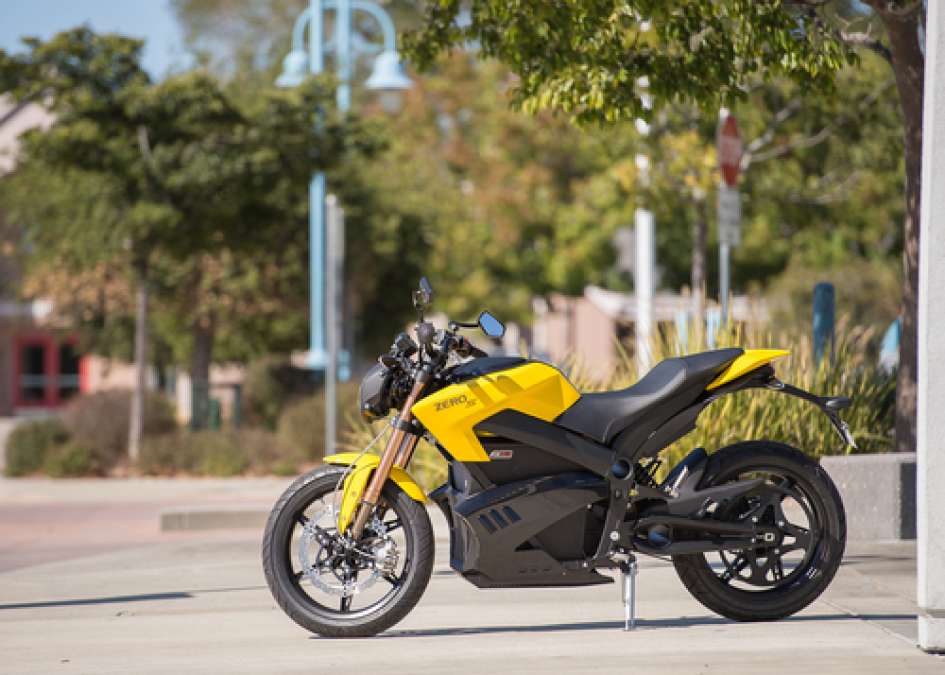The U.S. narrowly avoided a self inflicted recession that was to be triggered by the "Fiscal Cliff" when Congress passed an emergency bill, the American Taxpayer Relief Act of 2012. There was a long list of special tax provisions due to expire at the end of 20112, some of which were related to green energy and electric vehicles. With the extreme political wrangling, these may have gotten lost, but instead they were preserved in the bill.
The Joint Committee on Taxation published an 8-page list of details of the tax effects of the Taxpayer Relief Act. The list of preserved tax items is good news for those in support of the green energy and technology proposals of the Obama Administration.
The tax credits for 2- and 3- wheeled electric vehicles has been preserved. This covers 10 percent of the purchase price, up to $2,500 maximum, and applies only to vehicles with a 4 kilowatt-hour (or larger) battery pack that can go over 45 miles/hr. This affects Brammo and Zero Motorcycles, both of whom are selling electric motorcycles with top speeds over 100 miles/hr, as well as several smaller electric motorcycle and scooter manufacturers.
Extension or reinstatement of tax credits for biodiesel and cellulosic biofuels, including adding support for algae as a qualified feedstock. There's a lot of interest in algae biodiesel or bioethanol, because this feedstock is not food and does not contribute to the "food versus fuel" debate.
Extension of the wind energy tax credit. Extension of tax credits for electric vehicle recharging infrastructure. Extension of tax credits for energy efficient homes and energy efficient appliances.
Many of these provisions were simply extended for a year, meaning that around the end of 2013 there will again be a political fight over extension of these tax credits. In typical years these sorts of credits are renewed automatically, but recent political history in the U.S. has been atypical. As CNN noted, the extensions were implemented in the bill with language that simply swaps a December 31, 2013 date for the existing sunset date.
According to the Joint Committee on Taxation report, the only provisions expected to cost anything more than a blip is the biofuel and wind energy tax credits. The biofuel tax credits should cost about $2 billion, and the wind energy tax credits around $4 billion.
The $7500 tax credit for electric cars was not threatened by the Fiscal Cliff, and was not covered by the Taxpayer Relief Act.
Brammo issued a statement thanking U.S. Senator Ron Wyden (D-Ore.), Congressman Greg Walden (R-Ore.) and U.S. Sen. Jeff Merkley (D-Ore.), all of whom pitched in not only for electric vehicles, but for sustainability and clean energy initiatives overall. “This bi-partisan work and cooperation results in jobs and support for companies like Brammo,” said Craig Bramscher, CEO of Brammo. “It makes us proud when our elected office holders work together and excited for what this means for electric vehicles and the electric motorcycle industry, which will make these ‘vehicles of the future’ more accessible to all consumers.”
Jay Friedland, Legislative Director of Plug-in America, wrote on the Drivers Seat blog that "Plug In America is extremely gratified that two major plug-in tax credits which expired at the end of 2011 were extended as part of the final 'fiscal cliff' legislation just signed by President Obama."
Source: Joint Committee on Taxation






Comments
More Stupidity!!! Nothing
Permalink
More Stupidity!!! Nothing about this administration can possibly surprise me!
Renewable energy is
Permalink
In reply to More Stupidity!!! Nothing by HotRodLincoln3208 (not verified)
Renewable energy is stupidity? I don't THINK so! Thank you Uncle Sam for helping me afford my Zero DS!
So you couldn't buy it on
Permalink
In reply to Renewable energy is by Rick Steeb (not verified)
So you couldn't buy it on your own? The least you can do is make one of my car payments as a thank you for helping you buy your bike.
Buy an e-car if you want the
Permalink
In reply to So you couldn't buy it on by Aaron Turpen
Buy an e-car if you want the subsidy. This taxpayer is happier paying for clean air than for the military protection of foreign fossil fuels.
No wars are being fought over
Permalink
In reply to Buy an e-car if you want the by Rick Steeb (not verified)
No wars are being fought over my gasoline. I live where it's made. Almost literally. The wars in the Middle East aren't about oil imports (we barely import 15% of our oil from there), they're about the Petro Dollar (aka World Reserve currency), which is what makes your subsidies possible.
For every $41 in new taxes
Permalink
For every $41 in new taxes imposed on us, they cut $1 from the budget. Fiscal responsibility at its finest.